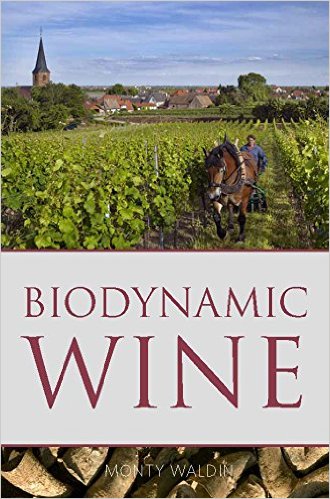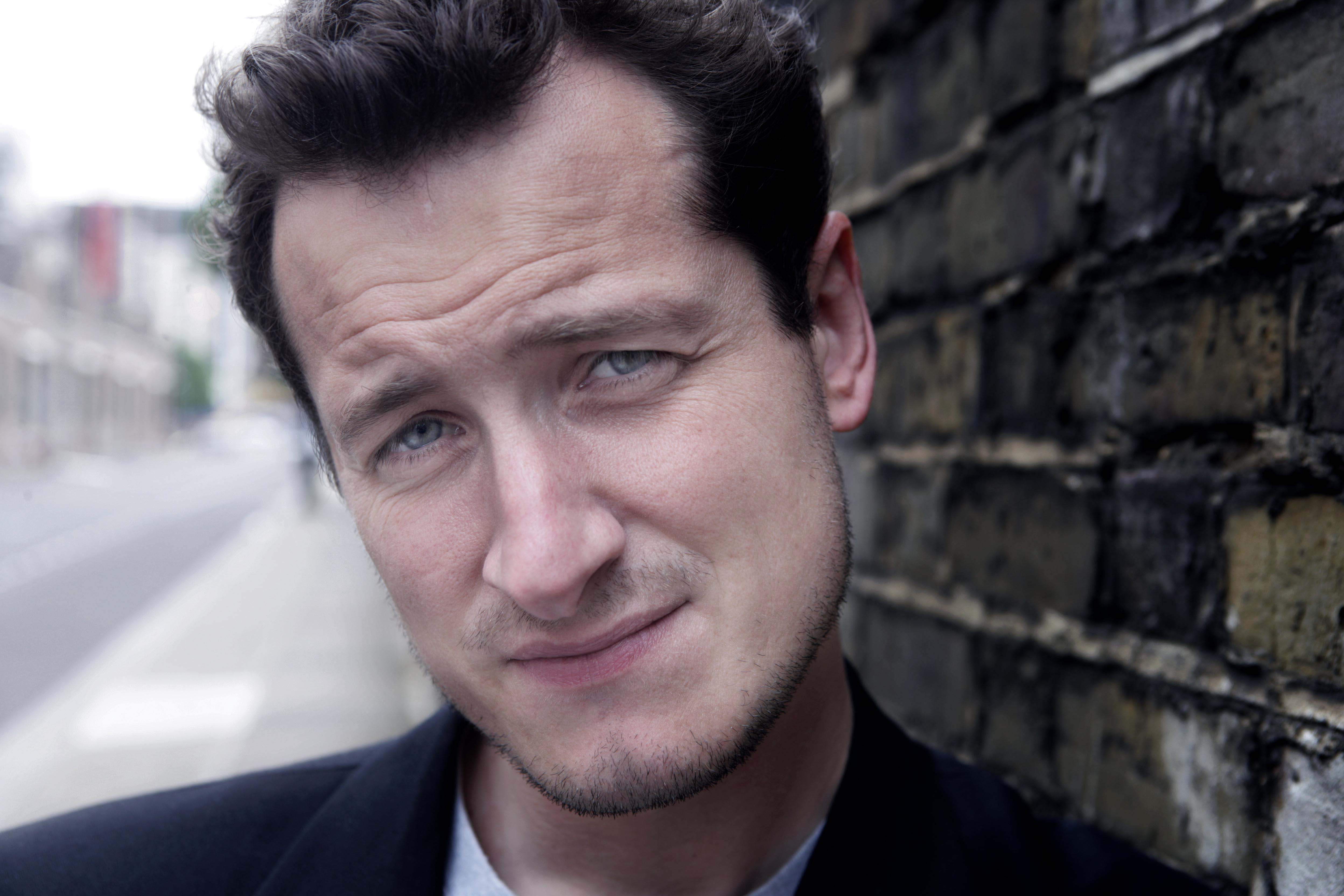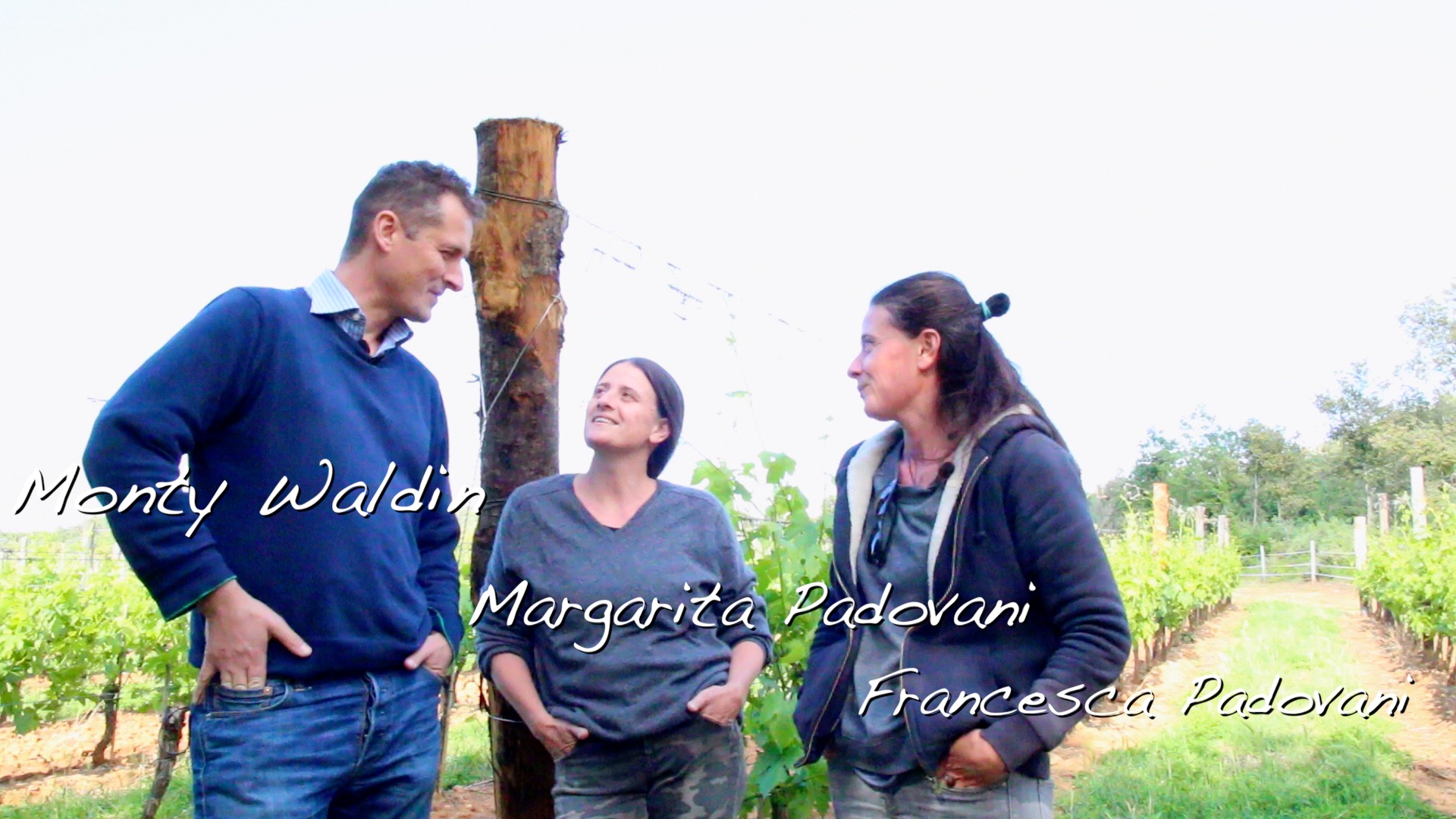
Campi di Fonterenza is a Brunello estate started by twin sisters Margarita and Francesca Padovani in 1997, after having moved to Montalcino from Milan. Their parents owned the farm they live on since the '70s, and this land later became their vineyards. The estate is comprised of four hectares of vines, as well as seven hectares of olive groves.
The Padovani sisters talk to Monty Waldin about organic farming and the challenges of family winemaking.
Monty Waldin: You're the only twins I know producing wine in Montalcino, just tell us a little bit about your family history and how you got here.
Francesca: Right, so it's actually Margarita who came here first.
Margarita: I first arrived in 1997 for a summer job, and actually never returned home. We were born in Milano and I was studying at the university there. I had just started, and we had a piece of land that my mother bought a few years earlier. And at that time they were opening the right to plant more vineyards, so we decided to start.
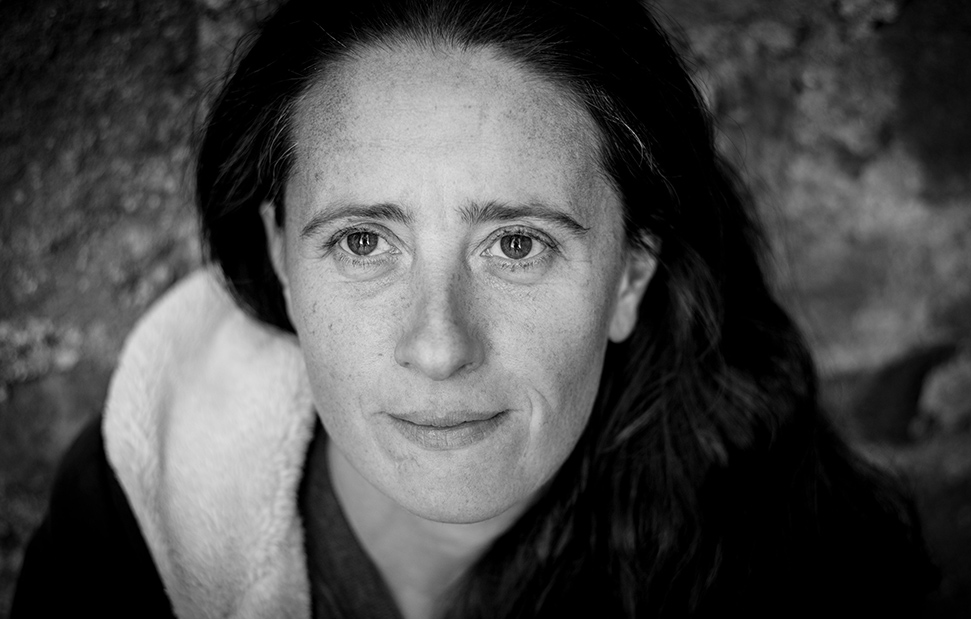
(Francesca Padovani photographed by Monty Waldin)
Were you nervous about that, not having grown wine? Because Montalcino was beginning to get known, but wasn’t that well known at that time?
Francesca: It was already the nineties. The area was already very known but still approachable, still you could plant. There was still an opportunity, now it's harder.
Because it's so expensive to buy land?
Francesca: It's expensive, there are no more rights to plant Brunello. We are the last generation of producers in Montalcino, and many of us are not from the region. So we are not Tuscan, we are not from Montalcino even though we are very attached to the place and we've been coming here since we were born. And the first approach was really working, first person, and paying very careful attention to work. You've been to us a few years ago, so you know.
Were you organic from the start?
Francesca: Yes.
Now that makes you quite unusual.
Francesca: We're kind of the pioneers with Francesco Leanza. We're the pioneers of organic in Montalcino. But then we were two women, young, coming from another region, dirt on our boots, on the tractor and doing organic. They were like, "Ha ha ha, yeah organic, organic!” But we believed in it, it was not a choice like okay, we do organic because it's fancy. We did it because we were working there and we didn't want to poison ourselves and we didn't want to drink this poison. So, it was really natural for us to do it.
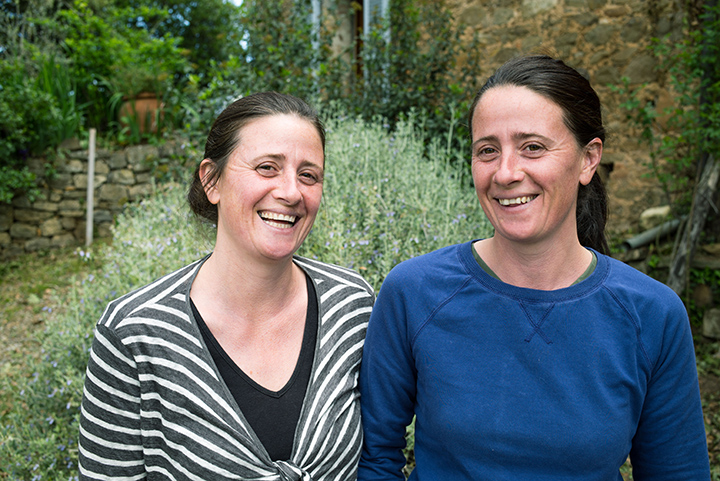
Margarita and Francesca Padovani photographed by Monty Waldin
Since you arrived, there was a boom and then a scandal. What has been its effect, has it been positive or negative?
Francesca: Like most things, I think there's a positive and a negative effect. In our small world it didn't affect us in the sense that we already had an idea. It's just our way of working, it's step by step. We think of the future but it's always with what we have in the here and now, and it's a slow process. Making wine in Montalcino ... It's the most expensive wine, most well-known wine in Italy nowadays. And there's a lot of pressure and people want to please— taste, please —international markets and that’s why they’ve been doing that.
Margarita: The request [meaning market demand for Brunello] was so high that people even didn't need to go and sell. They were staying home and they would sell it. Easy money, the easy money made them a bit ...
Lazy?
Margarita: Yes.
Francesca: And probably also I think there is a little bit of what journalists asked for or there was a moment ...
Margarita: Taste, the general taste.
Francesca: The taste! So people were looking, like now Montalcino it's changing in a very opposite way. Now, there was a moment when people were looking towards Bordeaux in style, now it's Burgundy. I don't know if you noticed, but many producers, they're now making Sangiovese which tastes like Burgundy. So sweet and no tannins, which again doesn't make sense to me. I mean, you have to focus on your soil and focus what Sangiovese is here and try to express that. So but of course, for us this is the way. From a broader perspective, it's natural that people try to please the market. This is now the trend. The mono cepage, one grape variety [single varietal wine], which is how are we are doing it, is what it's all about. And it's our power, our strength! But it's also now a lighter style, lighter color and very smooth, which was very different [from how it was] in the nineties. So maybe now we're going to find out that there's going to be Pinot Noir in our Sangiovese. Can you imagine that? But, anyway, it's part of the game. Everywhere you go you find this type of thing. In Italy, Montalcino, of course it was really big.
Margarita: At the same time, I think the trend is going back to the classics, to the roots. By going back to more classical wine, less powerful, there’s less interest in color and in tannin but more in the old variety of the old clones, people are looking, maybe there are a few. But still, there are some who are searching for the grape that was before.

Something a bit more authentic? Isn't that a bit of a global trend? Isn’t Montalcino now, rather than being a trendsetter, actually following the trend of a move towards lighter wines that aren't high in alcohol, but are refreshing, natural wines with minimal intervention either in the vineyard or in the wineries? Is Montalcino following a trend now rather than trying to set one? As an organic producer with a style of natural wine, how do you see it?
Francesca: I think sooner or later, this is going to happen. There is more and more interest in organics and a lot of producers are going in that direction. I think now we are more than twenty percent of organic producers. But it's good and it's going to grow. Montalcino is probably one of the only places in Tuscany that has such a character. Sangiovese has such a strong character here that you don't need to change it. You just need to put it up and show it.
To guide it!
Francesca: Yes, guide it. And tell this vineyard in this area to make this type of Brunello. That is our goal. That is our beauty. And I think if we're clever, we're going to do that. This is what we're going towards. And it's not a matter of cru, it's just a matter of trying to show the beauty and the character of a particular area, a particular climate and a particular vintage. And I think we're going to succeed; this is the goal. And it's not making, the idea of making easy wine, it's forcing again. Here you cannot do that. Yes, you can use some type of vinification to change. But, again, it's not a terroir wine, so we can do that, sure, no problem. But wine here is something else. It's Brunello, it's Montalcino with a specific character that we want to showcase. Then we can play and it's fun.
Since you started nearly 20 years ago, you have had visitors over that long span of time, how do they react to what you're doing in particular and what Montalcino is doing in general?
Francesca: I think the people that come here, come because they already have an idea, that we are organic producers that don't touch the wine. That try to just express the vintage.
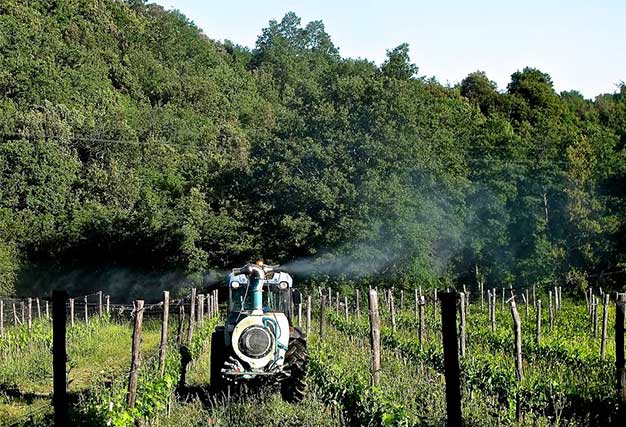
To be non-interventionists.
Francesca: Exactly. Over the years the vines are growing, we are growing, and getting more and more precise, more and more mineral, more and more towards what we are looking for. We are all growing, and the terroir, the vigneron, the person that produces the wine. So we are working together with the wine. I think they see that.The good thing about Montalcino is that you have wines that are a few years old in the cellar and you can see how things change, how the wine develops, how the vintage shows. And this is actually a really nice thing.
Another thing that makes you special, apart from the fact that you're twins, obviously, but you're both female and quite young. You are very unique in this region. How have views toward you changed, or perhaps in the wine world in general? Women do have a very special place in wine, they're much better tasters than men. How do you think you've been viewed as females and as organic females, if you like?
Francesca: I think we never really played the role of female producer. We are, but….
Margarita: We are working more than men. We are known as hard workers.
Francesca: We scare men, probably. But of course, being a woman we have a different sensibility, and if we use our real sensibility as a woman not as a man, I think we can get stuff that you guys cannot get. But it's a vice versa thing. It's always a matter of balance and I think we have a sensibility. But it's a specific thing, and I wouldn't go universal.
Too generalizing?
Francesca: Yes.
Margarita: There are women winemakers who we know, but they are all different and they have different characteristics.
Francesca: But surely it's not easy to be a woman in this world.
Margarita: Especially in the beginning it was hard, I think.
Why was it hard? Because people didn't take you seriously? Do they say, "Oh you're here on a holiday, you're not going to put your back into it?”
Francesca: You have to deal with men. You have to deal in a man's world, which sometimes is not easy. You have to work hard.
Margarita: Especially if you're young, probably, and, yes, it's more difficult then. Now people know us better.
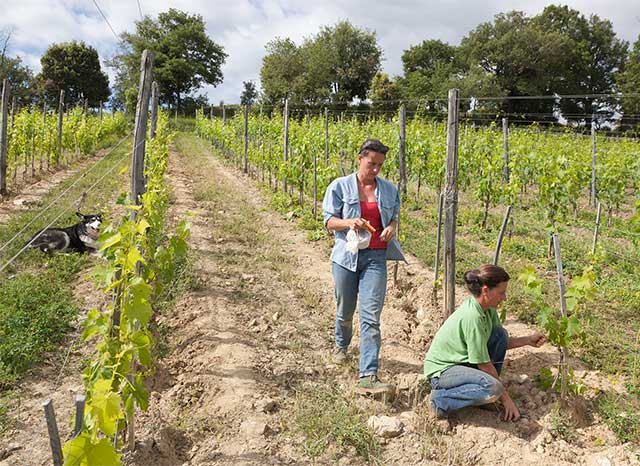
What kept you going in the early years? It wasn't easy for you. Was it just your sheer determination?
Francesca: We're just passionate and pushed by the work, we were working really hard.
Margarita: Doing it.
Francesca: We were just in a flow, in a wave and we were working and we were so passionate. That helped us to deal with the fatigue.
The hard work, the exhaustion that you felt.
Francesca: And after 10 years, we came out with our first Brunello and we started to get a little bit of feedback. We never really worked with ...
The media?
Francesca: Yes. We never really pursued that.
Yes, those horrible journalists.
Francesca: There is good and bad. Maybe because we are a little bit shy, too. Also, we know that we don't have a history and we are still learning and so we didn't feel like using that. We could use it, our brother is a journalist, but we never used it in this way. I think it's going to come. Whatever has to come will come. So it takes time and we want to do it our way.
So what's the next challenge for you two?
Margarita: We need more space. We need a new cellar. I think this is the second step of our estate. We have been working with a very small cellar, just spending time because the vineyards are far away from the cellar and the warehouse is in another place. We have to find a way to make this estate more stable and less ...
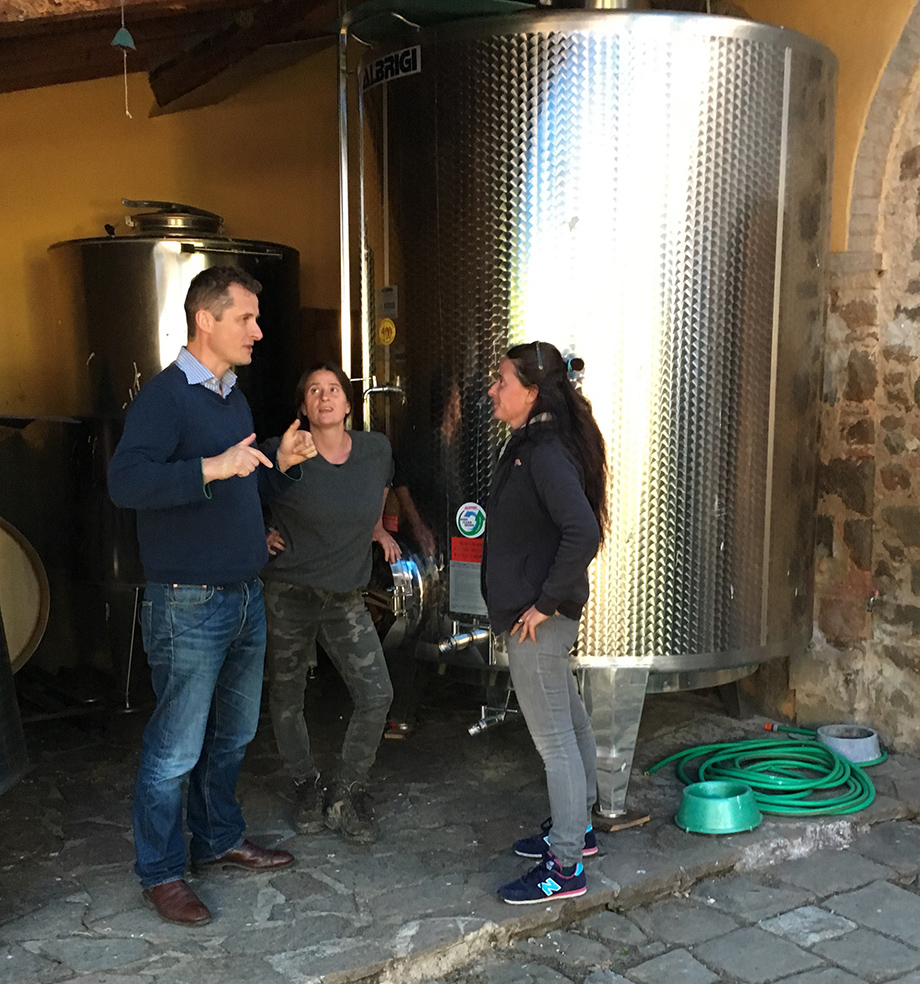
Chaotic?
Francesca: Expensive. We spent so much money just on moving things and the logistics is terrible. We are always in a car going to the vineyard, coming back, going to the olive grove. Everything is far away.
Margarita: The costs are really high in this estate, I think, the highest in Montalcino.
People are always saying because you're in Montalcino, everybody's a millionaire, right?
Francesca: No. If you see what kind of car we drive and what kind of life we live. But we are very happy. I'm happy. I think Marg is happy, too. So we are happy, but it's not a matter of money. It's not for that. You do it because you like to do it and you don't want to sit in the office, even though we also sit in an office.
Margarita: More and more actually.
Are your parents proud of you, or do they think, "Oh, my daughters, what were they doing?"
Margarita: No, they're both proud.
Francesca: I think so. Everybody in Italy, almost everybody, comes from an agricultural background. So they know what it is and they actually appreciate what we are doing.
Margarita: They supported us. Our father worked the vineyard.
Francesca: Until he break his hands, and now ...
Do they ever comments on the wine style, or do they just accept everything you do, "Oh marvelous, my daughter's fantastic?" Or would they say, "Mm, that's a little bit of a weird wine?"
Francesca: We know, if it was weird we knew about it. It's weird. We did some weird stuff, but it's also a matter of learning and getting more precise and knowing the vineyard, knowing the grape. Sangiovese is not the easiest grape to grow. It's one of the most planted grape(s) in Italy, but it's also a grape that is really influenced by everything. And the maturation, the balance of the phenolic maturation and the rest, it’s very specific. So it's not an easy grape to deal with.
Your wine seems to have more purity, more ethereal, aromatic if you like, Sangiovese. It’s very delicate but intense wine. So you must be doing something right.
Francesca: I hope so. I think so. I think we are on the way.
Margarita: The earth is helping a lot.
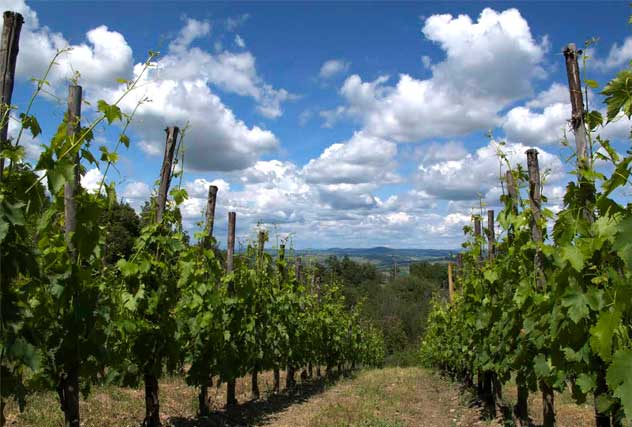
I know you spent a phenomenal amount of time in the vineyard. I don't know anyone else that spends more time in vineyards than you two per bottle of wine, per hours worked.
Francesca: We also choose the Alberello [meaning growing each vine as a small free-standing bush rather than lots of vines together like a long narrow hedge supported by wires]. Half of the vineyards grow Alberello, it's three times more [work] than any other growing system. So everything is by hand, everything we use is paper or natural.
Everything is recyclable. Is it Alberello vines that look a little bit like this? Which are really fiddly to prune, or you can do it like this when it's really easy.
Francesca: And then you have to tie it [the vine]. There are no wires, no nothing. You just have to tie it to a pole and we are not in Spain [where bush vines are common]. Sangiovese needs to be tied up otherwise it's a mess. But I think we are going to do an Alberello wine soon, just to see.
Just to make life even more complicated than it is already.
Margarita: Yes, another wine.
You've been here for roughly 20 years. How has it changed, what changes have you seen, and have these changes been for the best?
Margarita: A bit more than 20 years, actually, because we have been here since we were born.
Francesca: Yes, just before we were born. So from a very rural place, Montalcino was a really poor rural place and then 20 years ago everything started, or 30 years, let's say. But it became a place where not only tourists, but agriculture made lots of income and everything.
Margarita: The landscape.
Francesca: The landscape changed. It was Tuscany but Italy, until the '60s, until the '50s, you wouldn't find a vineyard like that. You would find a vineyard with olive trees, with other other fruit plants, with potatoes and grains in rows. It was not focused on winemaking. Of course, the agricultural story in Tuscany is the landowner. So by then it was Biondi Santi, Barbi and then the ...
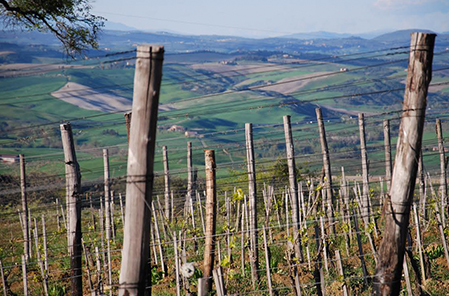
Peasants?
Francesca: Yes, peasants, but they were working for ...
Sharecroppers?
Francesca: Yes, sharecroppers. So they were working for the landowners and they were living for nothing, so they were living on their chickens, their pigs, their vines and their olives.
Margarita: The olives they were picking.
Francesca: It changed in the '60s, that was forbidden, and there was a big crisis. Lots of farmers left the countryside and the only few that could buy back their podere [farm house and the slice of land tied to it], they did. And so was the first generation of the new generation in Montalcino. And the rest escaped. It was a place based on art crafts. They were artisans.
There was the shoemaker, the carpenter, somebody beating copper to make pans and pots.
Francesca: Exactly, and these people didn't have jobs left because all the farmers left and they were also working for them. They left.
So it's a lot of depopulation. People went to the cities to earn a proper wage and have security and a warm house.
Francesca: Also, lots of people were working in the woods. They were doing charcoal burning. So six months a year they lived in the woods. Can you imagine? These people were living out of nothing in the woods. And then all of a sudden ..
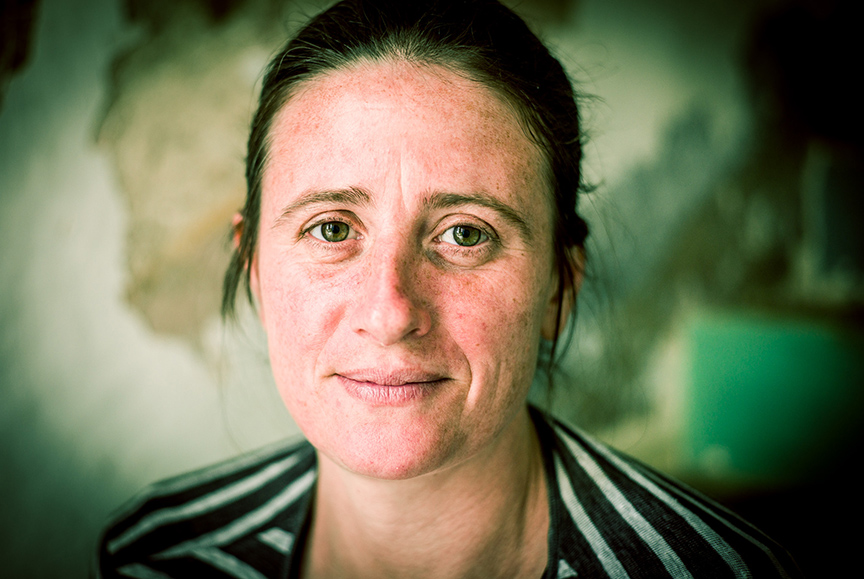
(Margarita Padovani photographed by Monty Waldin)
Boom.
Francesca: Boom. The boom and slowly, this is Montalcino today. I think we are still very lucky, we are still in a beautiful place. It's still very natural, we still have lots of woods. It's not ...
Spoiled.
Francesca: Spoiled, yes. So we are in a beautiful place, we just need more and more people using their brain and their heart and I think it's going to be a great success for everybody.
Your near neighbor ... Montalcino, the town where Brunello comes from, Montepulciano, which is a town about 45 kilometers away, its wines were far more famous than Montalcino was. But suddenly Montalcino just took off. Why? And why didn't Montepulciano? What made Montalcino so special?
Francesca: Well, one thing was surely because of the French, they taught us. Wine is also about commerce. So when you trade a wine and sell a wine, it spreads all over, it's well-known, you have more numbers, it becomes something more interesting and more known. So that happened here and didn't really happen in Montepulciano. Our exceptional thing is also that we been working with one grape, and this is the only place that you could actually have an identity in wine. Because you're using Sangiovese. That's it. In Chianti Classico, there are great wines in Chianti Classico. In Montepulciano again is not 100% Sangiovese, so different clones, different ... But it's not a wine that has a character that you will find here. And, let's say, this place produces wines that are special.
That makes a very special Sangiovese and doesn't need to be blended with anything to make a perfect wine, yes?
Francesca: Well, it's again ...
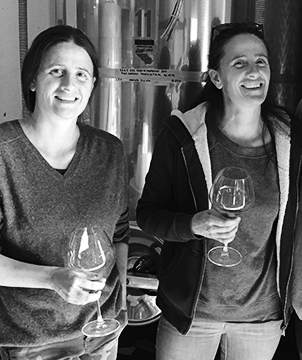
The scandal, yes, that's what they were doing.
Francesca: No, they were doing it because the taste that people were looking for was a different taste it was time of the super Tuscan, it was the time where you need deep color, power. You can have that color in Montalcino, not everywhere. Not in every vintage. Sangiovese it's a grape that changes a lot every year. One year you can have a deep color—2009 for example doesn't have color but that doesn't mean it's not without depth or interest or a beautiful wine. It's just a matter of accepting that.
And why does Sangiovese do so well here? Is it the soil? Is it the climate? Is it the presence of Amiata blocking cold winds? Is it the sea over this side? What is it?
Francesca: We have a very interesting climate, because we are on a hill and there is very old soil on the top of the hill, younger soil, on the lower part. You have different climate, you have the sea in the front, but you're also the continental influence by the Apennines, by also the height.
The soil is very interesting here, and it's very chaotic so it changes very, very often. And if you plant the right grape in the right place, and you know that in that little place you have a different growing system, if you're a good vigneron, you can make great wines. Not everywhere, of course there are areas where it's not well-located. But yes, let's say generally speaking it's a very well-located place.
The climate is good to ripen the Sangiovese and we don't have that difficulty in Chianti Classico, in [the high altitude and thus cool town of] Radda for example they need to wait to get [the grapes ripe]... And it's beautiful, they have very high acidity and I love this type of wines. And it's very different from here. Here we have a ripeness that they cannot get. It's a character and I think if we can take this and show it.
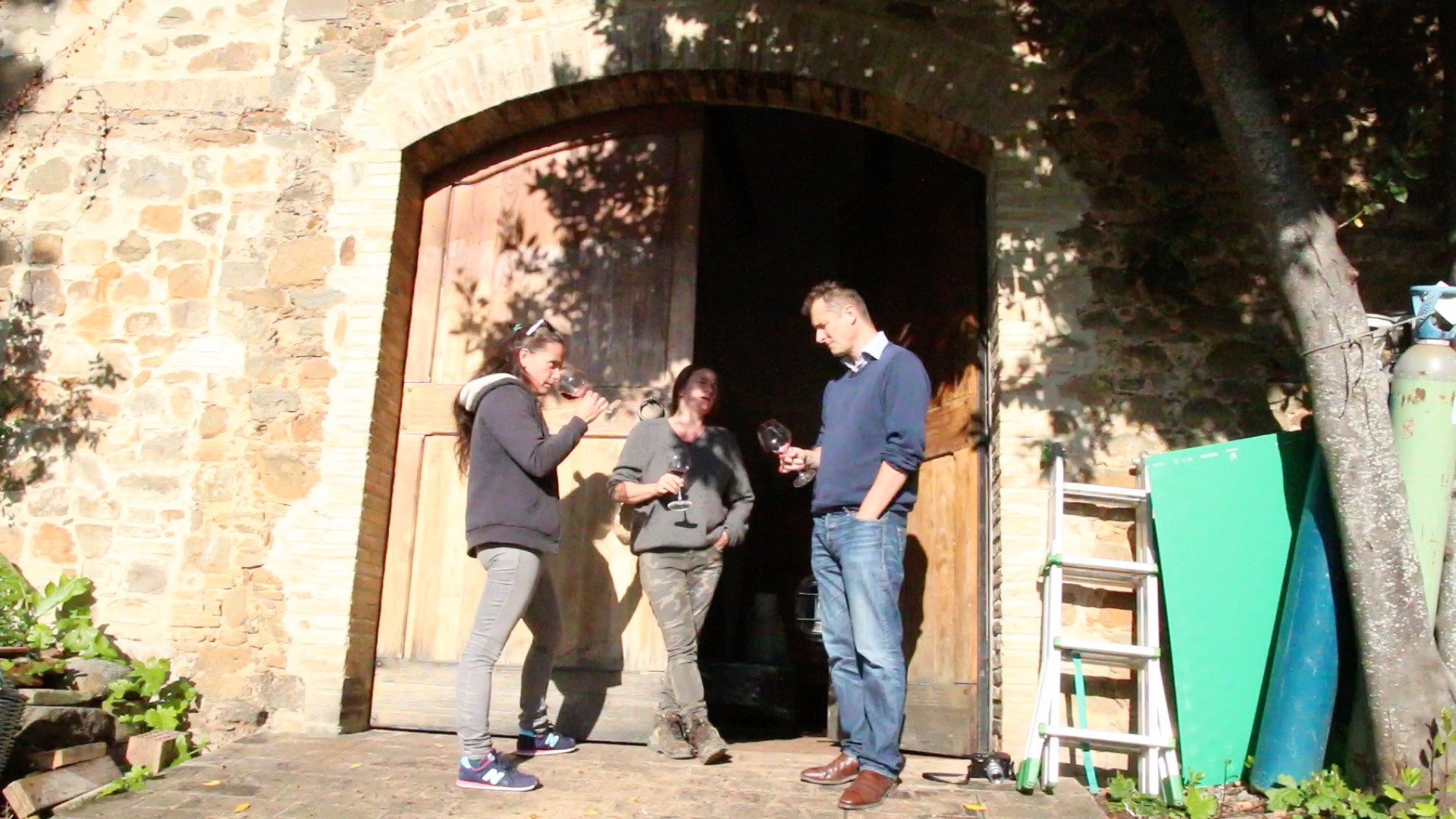
You know when you said about each little piece of soil, you may need to farm or treat your vines a little bit differently, like of an artisan treating every plant as an individual on its own, which you have always been doing. Do people come and ask, "How do you do that? How do you two do it? You seem to make really good wines?" Or, because you're not from the zone and you're both female, do they just think "Well, we know how to do it, we don't need to ask."
Francesca: Yes, I don't think people from here really taste each other's wines. And I have to admit, I only started to do that lately. I've been drinking wine but we have 220 producers [of Brunello in Montalcino]. So what I do in regards to Brunello I try to taste. Especially the one producer that I'm interested in, and I don't think it's very ... You don't find many producers drinking other people's wine. I drink a lot of wine from France, from Slovenia, from everywhere, and I try to drink more and more Sangiovese.
Margarita: But a typical thing of the organic producer is to share, and to talk to each other and to help each other. So if somebody finds out something that helps the cultivation of the vines, we talk a lot. And we try our wine, so we see the difference.
I agree. The Bio Group - you have a little organic wine producers group here, which I'm really pleased to see. People have maybe a bit of an insect problem and then you can call up your neighbor and say, "How did you deal with this without spraying a pesticide?"
Francesca: Yes, we do that a lot. But also, in Montalcino, we have few very good producers that can support and we can exchange. Also people like Paolo Vodipivec in Carso or Giovanna Morganti in Chianti Classico or Ariana Occipinti in Sicily. We talk to each other, we see each other, we are friends. It's a big family in the end. I feel comfortable in this little world.
Good. It hasn't always been like that for you, has it? There have been moments when it's been quite difficult.
Francesca: Yes.
And not always easy or not always friendly. I'm glad it's going in the right direction. You two are becoming really quite famous.
Francesca: No we're not. Come on.
Monty Waldin was the first wine writer to specialize in green issues. He is the author of multiple books, including The Organic Wine Guide (Thorsons, 1999); Biodynamic Wines (Mitchell Beazley, 2004); Wines of South America (Mitchell Beazley, 2003), winner of America’s prestigious James Beard Book Award; Discovering Wine Country: Bordeaux (2005) and Discovering Wine Country: Tuscany (2006), both Mitchell Beazley; and Château Monty (Portico, 2008). His most recent books are Monty Waldin’s Best Biodynamic Wines (Floris, 2013) for wine drinkers, Biodynamic Gardening (Dorling Kindersley, 2014) for biodynamic home gardeners, and Biodynamic Wine (2016, Infinite Ideas Oxford), the comprehensive how-to guide for biodynamic wine-growers and students of biodynamic wine.
Buy Monty Waldin's detailed guide to the nuts-and-bolts of biodynamic wine-growing on Amazon.
